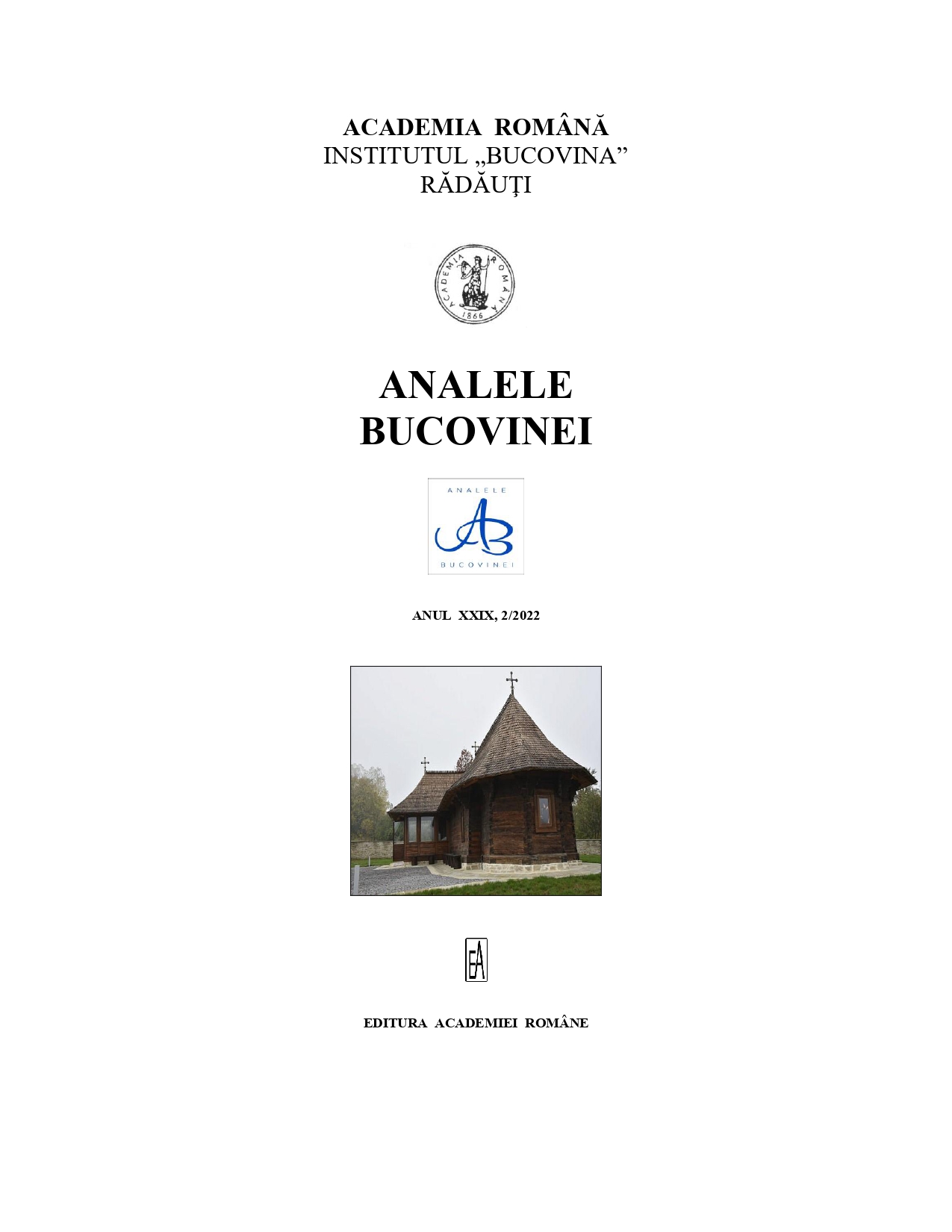IRACLIE PORUMBESCU – CTITOR DE CULTURĂ ȘI SPIRITUALITATE BUCOVINEANĂ
Iraclie Porumbescu – Founder of Culture and Spirituality in Bukovina
Author(s): Ilie MoleaSubject(s): History, Cultural history, Local History / Microhistory, Modern Age, 19th Century
Published by: Editura Academiei Române
Keywords: Church; school; priest; Putna Celebration of the year 1871; Stephen the Great; Iraclie Porumbescu; patriotism; culture;
Summary/Abstract: The following study highlights the personality of Iraclie Porumbescu (1823–1896), an emblematic figure in the history of Bukovina. He was a scholar and a priest and his name is related to old settlements with historical significance such as Sucevița or Putna, but also to certain prolific moments of the social and cultural life of Bukovina. On August 15, 1871, together with his son, the regretted composer Ciprian Porumbescu, he was enthusiastically taking part in the Celebration of the Romanian students in the country and abroad organized at the Putna Monastery. Iraclie Porumbescu is also considered to be Bukovinaʼs first modern prose writer. He was often compared to the renowned storyteller Ion Creangă, whose Childhood Memories are an important source of information regarding the old life and customs of the people who once lived in Bukovina. Thus, we will briefly layout a few biographical references of this priest who lived in Bukovina, insisting on the Romanian roots of the Porumbescu family, on the solid intellectual training which, in spite of the hardships of those times, Iraclie got since childhood, being initiated in the art of writing by Ghenadie Platenchi, the abbot of the Sucevița Monastery. It is worth mentioning that the scarce financial resources did not impede young Iraclie to deepen his intellectual knowledge, attending the courses of schools such as those in Karlsberg (Gura-Putnei), Suceava, Chernivtsi or Lemberg. Since his training years, he proved ambitious, hard-working and eager to defend the moral, spiritual and patriotic values of his ancestors. On the other hand, we cannot overlook his priestly service entrusted to him by God, a service which Iraclie fulfilled with dignity and responsibility in spite of the turmoil of the century, for 46 years (1850–1896), worthily preaching in villages such as Șipotele Sucevei, Boian, Stupca or Frătăuții Noi. As a priest, he actively involved in the social, political and especially cultural life of those times. An important aspect we would like to emphasize in our paper is the cultural side which the scholar priest vividly approached all his life. The literary works, which outlived him, present him as a genuine scholar and a leading nationalist of Bukovina. His literary works made him stand out even during his lifetime. In 1848, he wrote poems such as „Cântecul lui Iancu”, „Fata de Roman”, „Ieremia Moghilă și Săhastrul” and others. He collaborated with various newspapers of the time („Bucovina”, „Albina”, „Românul”, „Telegraful”), even being the secretary of „Bucovina”, the well-known cultural magazine, which appeared under the sponsorship of the Hurmuzachi family. The articles are full of profound patriotic accents, meant to strengthen the national consciousness of Bukovina, pleading for values such as identity and faith. In support of this description, Paul Leu, a famous biographer of the Porumbescu family, describes Iraclie as the one who „advocated, in his poetry and prose, for the revival of the national consciousness and of the ancient virtues, praising events, facts and personalities that made themselves conspicuous through time or during his lifetime”. The image of the scholar is closely related to his friendship with various men of culture of his time: Eudoxiu and Alecu Hurmuzachi, Aron Pumnul, Vasile Alecsandri, Constantin Morariu and others. Iraclieʼs texts, which remind us of these coryphaei of the Romanian culture, stand for the importance of this man, for whom the love for his native language and people represented a sacred duty. All the above aspects show that Iraclie Porumbescu, the scholar priest, was a true founder of culture and spirituality in Bukovina, making him stand out as a dignified and worthy example for posterity.
Journal: ANALELE BUCOVINEI
- Issue Year: 59/2022
- Issue No: 2
- Page Range: 357-375
- Page Count: 19
- Language: Romanian

